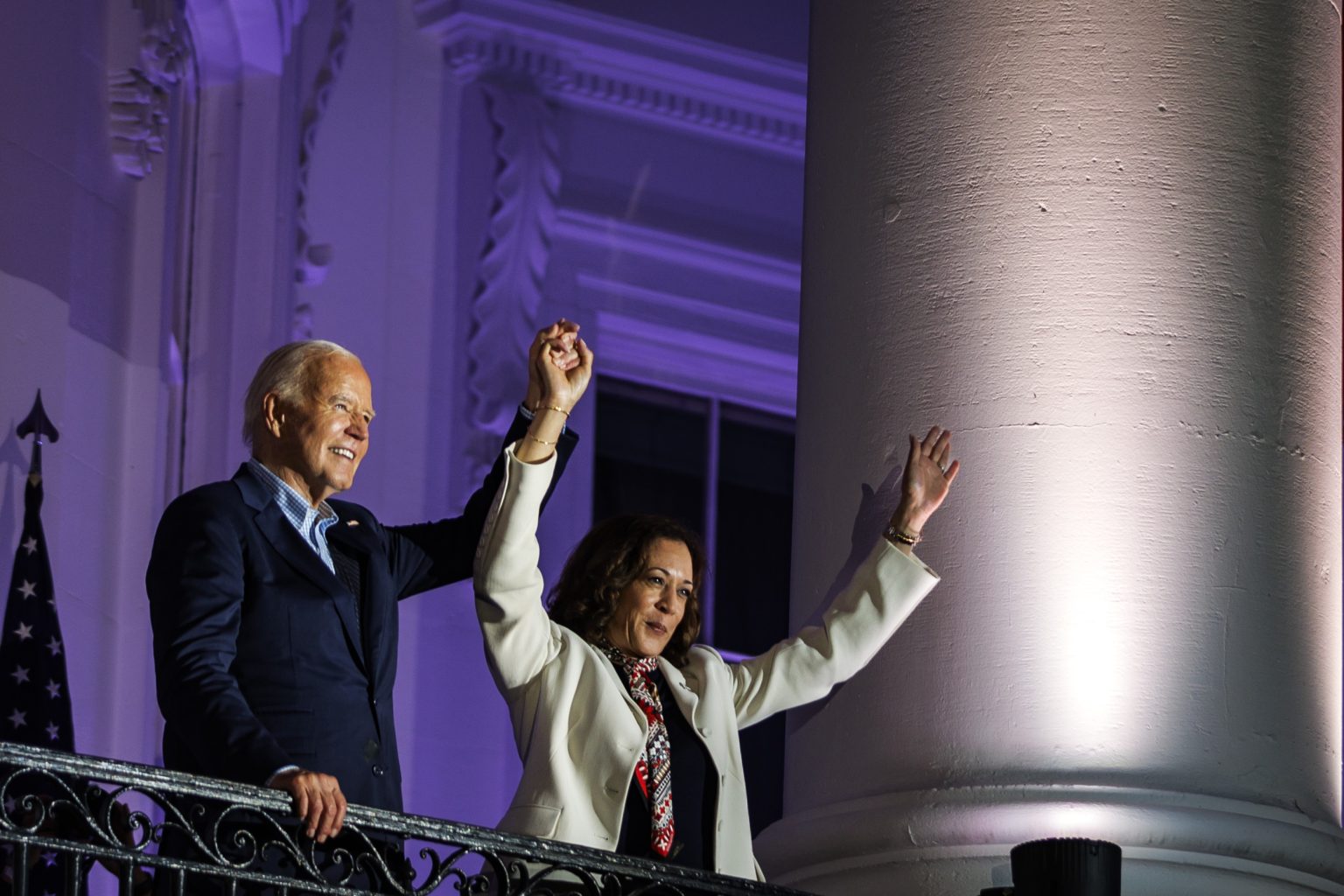Critics are taking aim at Kamala Harris after President Joe Biden’s decision to step down from the presidential race, endorsing Harris as his replacement. Despite potential challengers within the Democratic Party, major figures like Bill and Hillary Clinton have thrown their support behind Harris. Republicans, led by Donald Trump, are gearing up for a potential showdown in the presidential election scheduled for November 5. Biden, 81, and Trump, 78, had been set to face off before Biden’s surprising announcement.
Fox News host Sean Hannity was quick to voice criticism and skepticism of Harris following Biden’s decision. He accused Harris of being complicit in not addressing Biden’s purported cognitive decline sooner. Hannity also attacked Harris’s policy stances, labeling her as the most radical major party candidate in recent memory. He pointed to her calls to end fracking and ban plastic straws, as well as her alleged lack of action towards border security. These critiques were accompanied by a display of clips of Harris laughing, with Hannity suggesting that her demeanor may turn off voters.
Guest Kellyanne Conway, a former Trump campaign manager, echoed Hannity’s sentiments in her own critique of Harris, questioning her public speaking abilities and inspiration factor. Some observers on social media expressed surprise at Conway’s concerns, given that weaknesses in a potential opponent would theoretically work to Republicans’ advantage. However, Conway’s remarks hint at the broader strategy of undermining Harris’s credibility and candidacy. Other Fox News segments have similarly highlighted Harris’s perceived weaknesses, including her purported shift on certain policy stances and her identity as a Black woman in politics.
The media narrative surrounding Harris has become increasingly charged with criticisms that seem to focus on her identity, policies, and public presence. Some commentators have raised concerns over the potential intersection of racism and sexism in her bid for the presidency, with past challenges to electing Black leaders and women in top political positions serving as relevant context. The barrage of critiques and attacks against Harris may reflect broader political strategies aimed at discrediting the Democratic Party’s front-runner and setting the stage for a contentious election campaign.
While questions about Harris’s candidacy and viability as a presidential contender persist, her resilience and ability to weather criticism will likely be tested in the months leading up to the election. As the first Black woman to be in serious contention for the presidency, Harris faces unique challenges and barriers in a political landscape that remains predominantly white and male-dominated. Whether she can overcome these obstacles and secure the Democratic nomination, let alone win the presidency, remains to be seen. The intense scrutiny and opposition Harris is currently facing only underscore the high stakes of the upcoming election and the divisive nature of American politics.


